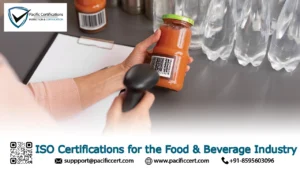
ISO Certifications for Transport and Logistics
If you are working in transport and logistics industry that means you must deliver a quality service, all the time. An ISO Certification will help you to give robust processes and a procedure to give the better results of the services provided by you, Also increase the business efficiency and decreases your environmental effect. With the help of ISO standards in these areas will help you get competitive benefits over you competitors and win more tenders.
ISO CERTIFICATIONS FOR TRANSPORT AND LOGISTICS
ISO (International Organization for Standardization) offers several certifications related to transport and logistics. These certifications help your organization to demonstrate their commitment to quality, efficiency, and safety in their operations.
Here are some ISO certifications applicable to the transport and logistics industry:
ISO 9001:2015 – Quality Management System (QMS): This standard sets the criteria for a quality management system, applicable to any organization involved in transport and logistics. It focuses on customer satisfaction, continuous improvement, and the effective management of processes.
ISO 14001:2015 – Environmental Management System (EMS): This certification addresses environmental management practices within an organization. It helps companies in the transport and logistics sector identify and control their environmental impact, such as reducing fuel consumption, managing waste, and minimizing pollution.
ISO 45001:2018 – Occupational Health and Safety Management System (OHSMS): This standard provides a framework for organizations to manage occupational health and safety risks. It helps transport and logistics companies create a safe working environment, reduce accidents, and ensure compliance with relevant health and safety regulations.
ISO 28000:2007 – Supply Chain Security Management System (SCSMS): This certification focuses on supply chain security management. It provides a framework to assess and manage security risks throughout the logistics process, including transportation, warehousing, and handling of goods.
ISO 39001:2012 – Road Traffic Safety Management System (RTSMS): This standard specifically targets road traffic safety management. It helps transport companies implement effective safety policies, reduce road accidents, and improve overall safety performance.
ISO 22301:2019 – Business Continuity Management System (BCMS): This certification addresses the need for organizations to plan, establish, implement, operate, monitor, review, maintain, and continually improve a documented management system to protect against, reduce the likelihood of, and ensure the recovery from disruptive incidents. It is particularly relevant to the logistics industry to ensure the continuity of operations during unexpected events or disasters.
These certifications provide guidelines and frameworks for organizations to improve their processes, enhance customer satisfaction, minimize risks, and demonstrate compliance with international standards. It is important to note that specific certifications might be more relevant to certain aspects of transport and logistics, such as freight forwarding, warehousing, or passenger transportation.
Requirements of ISO Certification for Transport & Logistics business
ISO Certifications help organizations to demonstrate their commitment to quality, safety, efficiency, and customer satisfaction. For a Transport & Logistics business, there are several ISO standards that could be relevant, each with its own set of requirements. The choice of the appropriate ISO standard(s) will depend on the specific aspects of your business that you want to focus on.
Here are a few ISO standards commonly applicable to Transport & Logistics businesses:
- ISO 9001: Quality Management System (QMS): ISO 9001 focuses on ensuring that an organization consistently provides products and services that meet customer and regulatory requirements. Key requirements include:
- Establishing a quality management system.
- Defining quality objectives and a process for achieving them.
- Monitoring and measuring processes and products.
- Implementing corrective and preventive actions.
- Continuously improving the QMS.
- ISO 14001: Environmental Management System (EMS): ISO 14001 is for businesses that want to manage their environmental impact more effectively. Key requirements include:
- Identifying environmental aspects and impacts.
- Establishing environmental objectives and targets.
- Implementing operational controls to minimize environmental impact.
- Monitoring, measuring, and evaluating environmental performance.
- Continually improving environmental performance.
- ISO 45001: Occupational Health and Safety Management System (OHSMS): For businesses in the transport and logistics sector, ensuring the health and safety of employees and stakeholders is crucial. ISO 45001 requirements include:
- Identifying and assessing occupational health and safety risks.
- Establishing controls to prevent accidents and ill health.
- Developing emergency preparedness and response procedures.
- Involving workers in health and safety decisions.
- Continually improving OHSMS performance.
- ISO 28000: Supply Chain Security Management System: This standard is specifically designed for supply chain security management in the logistics industry. It focuses on risk management and ensuring the security of goods during transportation and storage.
- ISO 31000: Risk Management: While not industry-specific, ISO 31000 provides principles and guidelines for effective risk management. In the transport and logistics sector, risk management is crucial due to the inherent uncertainties in transportation, storage, and supply chain activities.
- ISO 50001: Energy Management System: For businesses looking to manage energy usage and reduce energy costs, ISO 50001 provides a framework for establishing an energy management system.
It’s important to note that the requirements for ISO certification are detailed and can vary depending on the specific standard chosen. The certification process typically involves:
- Gap Analysis: Assessing your current processes against the requirements of the chosen ISO standard.
- Implementation: Making necessary changes to meet the standard’s requirements.
- Documentation: Creating the required documentation, including policies, procedures, and records.
- Internal Audit: Conducting internal audits to ensure compliance with the standard.
- Management Review: Reviewing the system’s performance with top management.
- Certification Audit: Having an external certification body assess your system for compliance with the standard.
What are the benefits of ISO Certification to your Transport & Logistics business?
Obtaining ISO certification for your transport and logistics business can offer several benefits:
Enhanced credibility and reputation: ISO certifications are globally popular and demonstrate that your business operates according to internationally accepted standards. It enhances your credibility, reassuring customers, partners, and stakeholders that you are committed to quality, safety, and environmental responsibility.
Improved customer satisfaction: ISO standards emphasize customer focus and continuous improvement. By implementing ISO-certified processes, you can enhance customer satisfaction through consistent service delivery, and better quality control. Also, effective complaint handling.
Increased operational efficiency: ISO standards provide frameworks for streamlining processes, reducing waste, and improving operational efficiency. So, By implementing these standards, you can identify and eliminate bottlenecks, optimize resource allocation, and enhance overall productivity.
Compliance with regulations: ISO certifications often align with regulatory requirements in the transport and logistics industry. So, By obtaining certification, you demonstrate your compliance with relevant laws, regulations, and industry standards. Minimizing the risk of penalties or legal issues.
Risk management and mitigation: ISO standards encourage a systematic approach to risk identification, assessment, and mitigation. By implementing ISO-certified management systems, such as ISO 9001 (QMS) and ISO 45001 (OHSMS), you can proactively manage risks related to quality, safety, and occupational health. Reducing accidents, incidents, and associated costs.
Competitive advantage: ISO certification can provide a competitive edge by differentiating your transport and logistics business from non-certified competitors. So, Many customers and partners prefer to work with certified organizations. Considering it a sign of reliability, professionalism, and commitment to quality.
Cost savings: ISO standards help you identify areas of inefficiency, waste, and non-compliance, leading to cost-saving opportunities. Implementing standardized processes and optimizing resource utilization, you can reduce operational costs, minimize rework, and enhance overall financial performance.
Employee engagement and morale: ISO certifications promote a culture of quality, safety, and continuous improvement within your organization. Thus, Employees become actively involved in the implementation of standards. Leading to increased engagement, morale, and a sense of ownership in achieving organizational objectives.
It’s important to note that the specific benefits may vary depending on the ISO standard(s) you choose to implement and the unique characteristics of your transport and logistics business.
Pacific Certifications is accredited by ABIS, If you need more support to find out relevant ISO Certification for your industry, please contact us at +91-8595603096 or support@pacificcert.com
Read About: ISO CERTIFICATIONS FOR EDUCATION SECTOR


